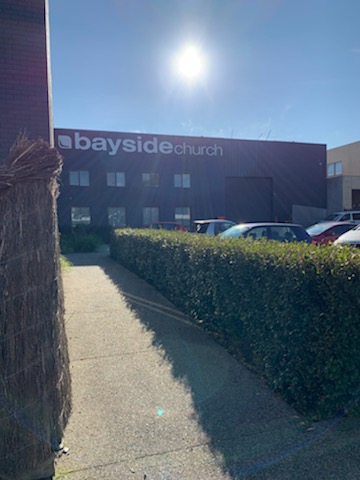A person I admire much is C.S. Lewis. I never got to meet him. He passed away when I was five, and I didn’t learn about him until I converted to Christianity in the late 70s. C.S. Lewis’ book, Mere Christianity, is one of the first Christian books I read. It’s still one of the books I recommend to people who want to learn more about their faith.
After reading Mere Christianity, I was hooked. Over the next few years, I ploughed through many of his other books: The Screwtape Letters, The Four Loves, The Great Divorce, The Problem of Pain, and, of course, the Chronicles of Narnia series.
Recently, I stumbled across a quote (from 1948) by C.S. Lewis addressing the fear that gripped the world in the wake of the atomic bombs dropped on Japan that effectively ended WW2. There is much of what he wrote that is still applicable over seven decades later as the world is gripped by another catastrophe:
In one way, we think a great deal too much of the atomic bomb. “How are we to live in an atomic age?” I am tempted to reply: “Why, as you would have lived in the sixteenth century when the plague visited London almost every year, or as you would have lived in a Viking age when raiders from Scandinavia might land and cut your throat any night; or indeed, as you are already living in an age of cancer, an age of syphilis, an age of paralysis, an age of air raids, an age of railway accidents, an age of motor accidents.”
In other words, do not let us begin by exaggerating the novelty of our situation. Believe me, dear sir or madam, you and all whom you love were already sentenced to death before the atomic bomb was invented: and quite a high percentage of us were going to die in unpleasant ways. We had, indeed, one very great advantage over our ancestors—anaesthetics; but we have that still. It is perfectly ridiculous to go about whimpering and drawing long faces because the scientists have added one more chance of painful and premature death to a world that already bristled with such chances and in which death itself was not a chance at all, but a certainty.
This is the first point to be made: and the first action to be taken is to pull ourselves together. If we are all going to be destroyed by an atomic bomb, let that bomb when it comes find us doing sensible and human things—praying, working, teaching, reading, listening to music, bathing the children, playing tennis, chatting to our friends over a pint and a game of darts—not huddled together like frightened sheep and thinking about bombs. They may break our bodies (a microbe can do that), but they need not dominate our minds. — “On Living in an Atomic Age.”
What a way Lewis had with words. There’s so much in this extract from one of his Journalistic Essays that we can meditate on today. Death is inevitable, and there are so many ways in which a person can die. But that thought should not stop us from making the very most of every moment in the meantime.
During 2020, I’ve watched people deal with the global pandemic in all sorts of ways. Some have gone down the rabbit hole of conspiracies (as if the world has never faced a pandemic before). Others have been gripped by fear or denied there even is a virus! But most of us have taken it in our stride, trusted our leaders, listened to wise advice, and made the most of life as it became. My introverted friends even told me they enjoyed the lockdown.
Jesus taught his followers to make the most of every season of life they found themselves in. In the Parable of Ten Minas (Luke 19:11-27), Jesus used a word that is found only once in the New Testament. He told them, “Occupy till I come” (13). The word pragmateuomai is an ancient mercantile term for trading. It means “to be fruitful, to be occupied in anything; to carry on a business.”
Pragmateuomai is where our English word “pragmatic” is derived. It means, be practical, sensible, & reasonable – excellent qualities for any person, especially followers of Jesus. Sadly, this year I’ve seen some of God’s people (even pastors and church leaders) spread lies and conspiracies that are anything but sensible and reasonable. Time will show their teachings, scaremongering, and (so-called) prophecies to be what they are – entirely false!
Let God’s people be known for their common-sense, their wisdom, and their fruitfulness. And let’s enjoy our lives and help others to do the same. Let’s remember the words of C.S. Lewis when the end comes, let it “find us doing sensible and human things—praying, working, teaching, reading, listening to music, bathing the children, playing tennis, chatting to our friends over a pint and a game of darts—not huddled together like frightened sheep and thinking about bombs.” Or pandemics!







